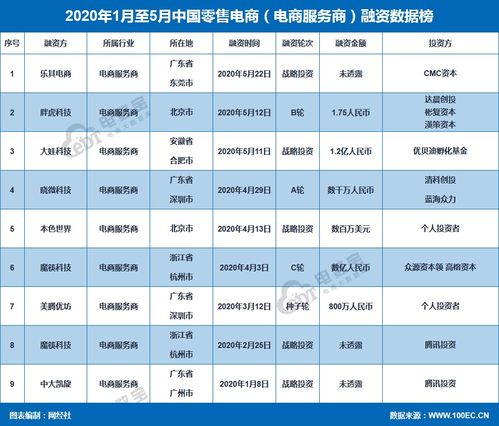Title: Maximizing Success in the Ecommerce Industry: Strategies and Insights
The ecommerce industry has witnessed unprecedented growth in recent years, revolutionizing the way businesses operate and consumers shop. In this dynamic landscape, staying ahead requires a deep understanding of market trends, consumer behavior, and effective strategies to drive growth and success. This comprehensive guide delves into key aspects of the ecommerce industry, offering insights and actionable strategies to maximize success.
Ecommerce is continuously evolving, shaped by technological advancements, changing consumer preferences, and market dynamics. To thrive in this competitive landscape, businesses must stay abreast of emerging trends and adapt their strategies accordingly. Some notable trends include:
- Mobile Commerce (Mcommerce): With the proliferation of smartphones, an increasing number of consumers prefer shopping on mobile devices. Optimizing websites and platforms for mobile compatibility is essential.
- Personalization: Tailoring shopping experiences based on individual preferences enhances customer engagement and loyalty. Leveraging data analytics and AIdriven algorithms can facilitate personalized recommendations and targeted marketing campaigns.
- Omnichannel Retailing: Seamlessly integrating online and offline channels provides customers with flexibility and convenience. Adopting an omnichannel approach ensures a cohesive brand experience across various touchpoints.
- Voice Commerce: The rise of voiceactivated devices presents new opportunities for ecommerce. Optimizing product listings and implementing voice search optimization strategies can capitalize on this trend.
Marketing plays a pivotal role in driving traffic, acquiring customers, and fostering brand awareness in the ecommerce landscape. Implementing effective marketing strategies can significantly impact business success. Key strategies include:
- Search Engine Optimization (SEO): Enhancing website visibility on search engines through keyword optimization, content marketing, and link building strategies improves organic traffic and boosts rankings.
- Social Media Marketing: Leveraging popular social media platforms to engage with target audiences, showcase products, and run targeted advertising campaigns can drive brand visibility and customer engagement.
- Influencer Partnerships: Collaborating with influencers and industry experts to endorse products and promote brand awareness can amplify reach and credibility among relevant audiences.
- Email Marketing: Building and nurturing customer relationships through personalized email campaigns, promotional offers, and exclusive discounts can drive repeat purchases and increase customer lifetime value.
- Content Marketing: Creating compelling and informative content such as blogs, videos, and product guides not only educates consumers but also enhances brand authority and fosters trust.
A seamless and intuitive user experience is crucial for retaining customers and driving conversions in ecommerce. Optimizing various aspects of the user journey can enhance satisfaction and encourage repeat purchases. Key considerations include:
- Website Design and Navigation: Designing userfriendly interfaces with clear navigation and intuitive layouts facilitates smooth browsing and encourages exploration of product offerings.
- Fast Loading Speeds: Optimizing website performance and minimizing loading times ensure a frictionless shopping experience and reduce bounce rates.
- Streamlined Checkout Process: Simplifying the checkout process with minimal steps and offering multiple payment options enhances convenience and reduces cart abandonment rates.
- Responsive Customer Support: Providing prompt and helpful customer support through various channels, including live chat, email, and phone, enhances trust and resolves issues efficiently.
- Secure Payment Options: Implementing robust security measures and offering secure payment gateways instills confidence in customers and mitigates concerns about data privacy and fraud.

Embracing innovative technologies can provide ecommerce businesses with a competitive edge and unlock new opportunities for growth. Some emerging technologies shaping the future of ecommerce include:
- Artificial Intelligence (AI) and Machine Learning: Harnessing AIpowered algorithms for personalized recommendations, chatbots for customer support, and predictive analytics for demand forecasting can enhance operational efficiency and customer experiences.
- Augmented Reality (AR) and Virtual Reality (VR): Offering immersive shopping experiences through AR/VR technology allows customers to visualize products in realworld settings, reducing uncertainties and increasing purchase confidence.
- Blockchain Technology: Implementing blockchain for transparent supply chain management, counterfeit prevention, and secure transactions enhances trust and transparency in ecommerce transactions.
- Internet of Things (IoT): Connecting smart devices and wearables to ecommerce platforms enables personalized marketing, predictive maintenance, and seamless reordering of consumable products.
- Voice Commerce: Integrating voice assistants and voiceactivated shopping features into ecommerce platforms caters to the growing trend of voice search and facilitates handsfree shopping experiences.
The ecommerce industry offers immense opportunities for businesses to thrive and expand their reach in the digital marketplace. By staying abreast of market trends, implementing effective marketing strategies, optimizing user experiences, and embracing emerging technologies, ecommerce businesses can position themselves for sustained growth and success. Continuously innovating and adapting to evolving consumer preferences will be key to staying ahead in this dynamic and competitive landscape.











